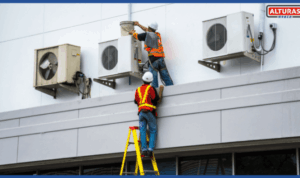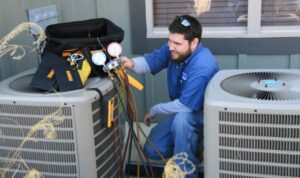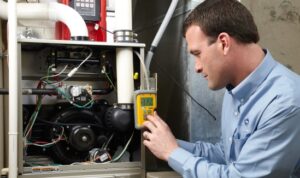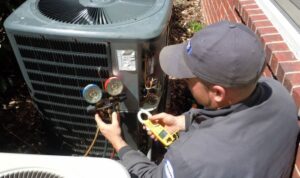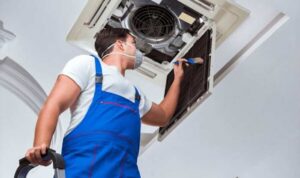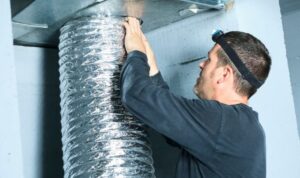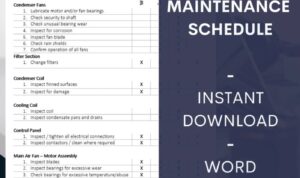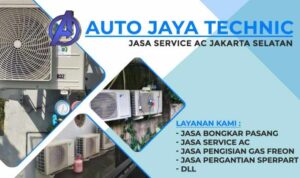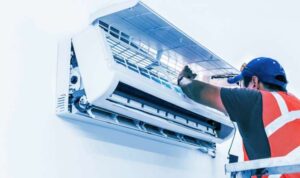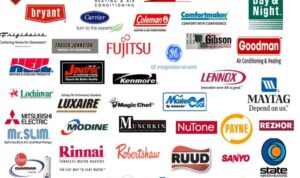As heating & air conditioning service takes center stage, this opening passage beckons readers with engaging insights into the world of maintaining these systems. From the importance of regular maintenance to energy efficiency tips, this guide aims to provide a comprehensive overview for homeowners and professionals alike.
Importance of Regular Maintenance
Regular maintenance is crucial for heating and air conditioning systems to ensure they operate efficiently, reduce energy consumption, and prolong their lifespan. By scheduling routine maintenance appointments, homeowners can prevent costly repairs and unexpected breakdowns.
Routine Maintenance Tasks
- Checking and replacing air filters to improve indoor air quality and system efficiency.
- Inspecting and cleaning the ductwork to remove dust and debris that can obstruct airflow.
- Testing thermostat settings and calibrating if necessary to maintain accurate temperature control.
- Lubricating moving parts to reduce friction and prevent wear and tear on the system.
- Inspecting electrical connections and tightening if needed to ensure safe and reliable operation.
Benefits of Scheduling Regular Maintenance
- Improved Energy Efficiency: Regular maintenance helps the system operate at peak performance, reducing energy consumption and lowering utility bills.
- Extended Lifespan: By keeping the system well-maintained, homeowners can prolong the lifespan of their heating and air conditioning units, saving money on premature replacements.
- Enhanced Comfort: Properly maintained systems provide consistent heating and cooling, ensuring a comfortable indoor environment year-round.
- Prevent Costly Repairs: Identifying and addressing potential issues early through regular maintenance can prevent major breakdowns and expensive repairs in the future.
Common Heating System Issues
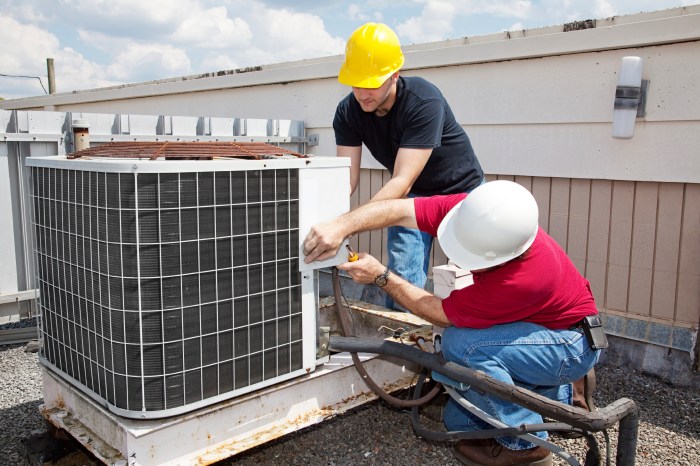
Heating systems can encounter various issues that can disrupt the comfort of your home during the colder months. Understanding common problems and their causes can help you troubleshoot minor issues before they escalate.
Furnace Not Producing Heat
One of the most common heating system issues is a furnace that fails to produce heat. This can be due to a faulty thermostat, a clogged filter, or a malfunctioning pilot light. To troubleshoot, check the thermostat settings, replace the air filter, and ensure the pilot light is lit.
Inadequate Heating
If your heating system is running but not providing enough warmth, it could be caused by leaky ducts, improper insulation, or a malfunctioning blower motor. Inspect ductwork for leaks, add insulation where needed, and schedule a professional inspection of the blower motor.
Strange Noises
Unusual noises such as banging, rattling, or squealing coming from your heating system can indicate issues with the blower motor, loose components, or airflow obstructions. Turn off the system and contact a technician to diagnose and repair the problem.
Uneven Heating
If some rooms in your home are warmer than others, it may be due to blocked vents, air leaks, or an improperly sized heating system
Air Conditioning System Maintenance
Regular maintenance of your air conditioning system is crucial to ensure optimal performance and longevity. By following a few simple steps, you can keep your AC unit running efficiently and effectively.
Importance of Changing Air Filters Regularly
- Changing air filters regularly helps maintain good air quality in your home by trapping dust, dirt, and other particles that can circulate through the system. This is especially important for individuals with allergies or respiratory issues.
- Dirty air filters can restrict airflow, causing the system to work harder and consume more energy, leading to higher utility bills. By replacing filters every 1-3 months, you can improve energy efficiency and reduce operating costs.
- Blocked or clogged filters can also put strain on the AC unit, potentially causing damage to the system over time. Regular filter changes can help prevent costly repairs and extend the lifespan of your air conditioning system.
Cleaning the Condenser Coils for Improved Efficiency
- Condenser coils play a critical role in the cooling process by releasing heat absorbed from inside your home to the outside environment. Over time, these coils can accumulate dirt, debris, and grime, reducing their ability to transfer heat efficiently.
- Regularly cleaning the condenser coils can improve the overall efficiency of your AC unit, allowing it to cool your home more effectively while consuming less energy. This can lead to lower energy bills and a more comfortable indoor environment.
- To clean the condenser coils, turn off the power to the unit, remove any debris from the surrounding area, and gently spray the coils with a coil cleaner or a mixture of water and mild detergent. Rinse thoroughly and allow them to dry before restoring power to the system.
Energy Efficiency Tips
When it comes to improving the energy efficiency of your heating and air conditioning systems, there are several strategies you can implement. By making some simple changes, you can reduce your energy consumption and ultimately save money on your utility bills.
Thermostat Options and Energy Consumption
Choosing the right thermostat for your heating and air conditioning system can have a significant impact on your energy consumption. Programmable thermostats allow you to set specific temperatures for different times of the day, ensuring that your system is not running when it's not needed.
This can lead to substantial energy savings over time.
Proper Insulation for Energy Savings
Proper insulation is key to reducing energy bills associated with heating and air conditioning. By ensuring that your home is well-insulated, you can prevent warm or cool air from escaping, reducing the workload on your HVAC system. This can result in lower energy consumption and more efficient operation of your heating and cooling systems.
Summary
In conclusion, ensuring proper maintenance and implementing energy-saving strategies are key to keeping heating and air conditioning systems running smoothly. By following the tips Artikeld in this guide, individuals can optimize their systems for efficiency and cost-effectiveness.
FAQ Corner
How often should I schedule maintenance for my heating and air conditioning systems?
It is recommended to have professional maintenance performed at least once a year to ensure optimal performance and longevity of your systems.
What are some signs that indicate my heating system needs repair?
Unusual noises, uneven heating, or a sudden increase in energy bills can be indicators that your heating system requires attention from a professional technician.
Why is it important to change air filters regularly in an air conditioning system?
Regularly changing air filters ensures proper airflow, improves indoor air quality, and helps the system operate efficiently by reducing strain on the components.

